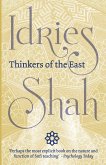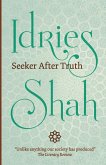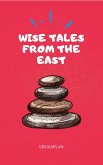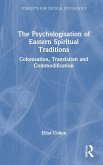East & West collects eighteen essays and reviews in East-West comparative philosophy and religion written by Julius Evola for the journal East & West. Evola covers an astonishing array of traditions, including Hinduism, Buddhism, Zen, Tantrism, Yoga, Vedanta, Taoism, Stoicism, and Existentialism; such thinkers as René Guénon, Ernst Jünger, Mircea Eliade, Sri Aurobindo, Meister Eckhart, F. W. J. Schelling, Martin Heidegger, Karl Jaspers, and C. G. Jung; and such topics as suicide, psychology, sexual magic, and the Egyptian and Tibetan Books of the Dead. Evola's goal is not simply to identify superficial doctrinal parallels between Eastern and Western traditions, but to use these comparisons to uncover their common root, the one Tradition that underlies the many traditions, which is the central focus of his work.
Hinweis: Dieser Artikel kann nur an eine deutsche Lieferadresse ausgeliefert werden.
Hinweis: Dieser Artikel kann nur an eine deutsche Lieferadresse ausgeliefert werden.








